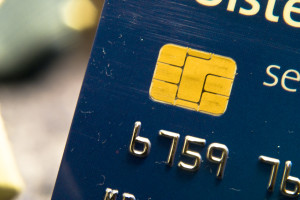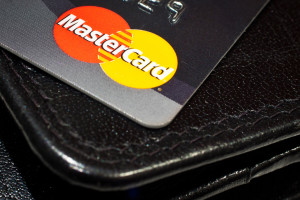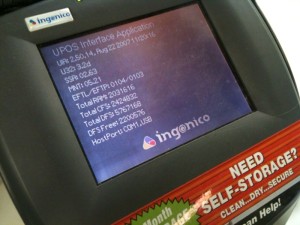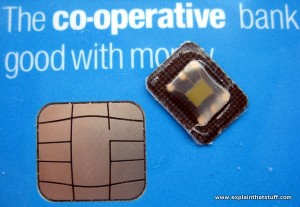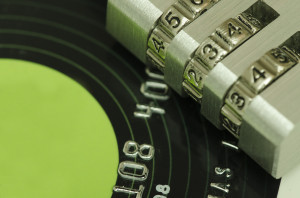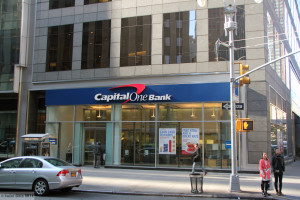Category: Visa MasterCard American Express
June 16th, 2014 by Elma Jane
Visa announced yesterday a new designation for consumer reload-able prepaid products that aims to simplify and clarify fees, step-up consumer protections and make prepaid solutions a valid tool for getting onto stronger financial footing. Consumers have been confused by an often complex prepaid landscape. As a prepaid leader, it is important to go beyond current requirements in the marketplace and bring transparency to this growing product area. This Visa designation will signify a new level of simplicity, protection and opportunity, enabling cardholders to confidently manage their spending every day.
To qualify for the Visa prepaid designation, prepaid programs must offer things like simplified fees and transparent disclosures of them. The new designation also bans some types of feeing such as transaction decline fees, customer service fees or overdraft protection (which is not to be offered) fees among others. Once designated, cards products will receive a seal that will be visible on card packaging and materials.
Visa’s efforts to raise the bar on quality in the prepaid industry by building Compass Principles are vital because millions of Americans are searching for tools to help them reduce financial friction, and prepaid cards can be a valuable option.
Posted in Best Practices for Merchants, EMV EuroPay MasterCard Visa, Visa MasterCard American Express Tagged with: consumer, customer service fees, overdraft protection fees, prepaid products, prepaid solutions, simplified fees, transaction decline fees, visa
June 16th, 2014 by Elma Jane
Credit card companies are racing against tech giants like Apple and Google to create what would thin our wallets forever. The race, which started to replace paper with plastic, is now entering a new phase of combining our cell phones and credit cards. Credit card giant American Express is working on developing a next generation app, which would let consumers shop using their virtual credit cards just like virtual boarding passes on an iPhone Passbook. Amex doesn’t stand alone in the race. Google, Square and Apple are some of the many companies in Silicon Valley, which are working on taking the leap. While Google Wallet and PayPal are some of the available products providing customers with a virtual wallet experience. The credit card companies still continue to benefit being the point of sale for these products. This puts Amex in a unique position, as it doesn’t have to struggle becoming the card customers choose to use. Amex is just a jump away in moving from customers’ wallet to cellphone.
Posted in Best Practices for Merchants, Visa MasterCard American Express Tagged with: American Express, amex, app, Apple, card, cellphone, credit-card, customers, google, Iphone, virtual credit cards, wallet
June 9th, 2014 by Elma Jane
Some American banks and financial institutions, like JPMorgan Chase, American Express and Citi, have already issued credit cards with new security technology. Other banks will do so by the end of the year. Often referred to as E.M.V. (short for Europay, MasterCard and Visa) or chip-and-PIN, these new cards use a combination of an embedded microchip and a personal numeric code to authorize payment transactions. Depending on the card issuer, some cards may have the chip but require just the old-fashioned signature instead of a PIN.
Most traditional credit cards in the United States today use a magnetic strip and a customer signature to seal a deal. The information embedded in the stripe can be easily cloned, however, and signatures can be forged. The chips in the newer E.M.V. cards which encode account information when transferring it to the merchant are harder to duplicate. The PIN must be entered for each charge, which helps make the cards more secure for in-person purchases. The cards are not infallible, though, criminals have still found ways to steal PINs and make fraudulent online purchases.
With new types of credit cards come new payment terminals, and many retailers must upgrade their equipment to make it compatible with E.M.V. cards. Instead of a slot to swipe the strip, the new credit card terminals typically need a chip reader. Most merchants will probably have the new equipment in place by October 2015, when new rules about fraud liability kick in. Under these rules, the bank or the merchant could be held accountable for any fraudulent charges if one of them has not upgraded to the new system. The party with the weaker security measures must pay.
Posted in Best Practices for Merchants, Credit card Processing, Credit Card Reader Terminal, Credit Card Security, EMV EuroPay MasterCard Visa, Visa MasterCard American Express Tagged with: account information, American banks, American Express, card issuer, cards, chip, Chip and PIN, chip reader, Citi, credit card terminals, credit cards, E.M.V., embedded microchip, EuroPay, financial institutions, fraud liability, JPMorgan Chase, magnetic strip, MasterCard, merchant, numeric code, payment terminals, payment transactions, PIN, Security, visa
June 4th, 2014 by Elma Jane
The operator of a gold vault on the Isle of man is to issue a credit card made of solid gold that enables customers to draw down cash on their holdings of the valuable metal. The 14-carat Visa gold card from IMGold will be made available to clients who have at least £100,000 of the metal bars in their vault. The idea is that customers can use the card to borrow against their reserves, effectively hedging against a decline in the value of gold.
IMGold is currently inviting applicants for the blinged up store of wealth under the banner: The card that carries more weight.
The Isle of man is some way behind Kazakhstan’s oligarchs, who have been brandishing gold and diamond-encrusted cards for some year now. MasterCard and Kazkommertsbank introduced their own diamond-encrusted card in the province back in 2008. This was followed in 2012 by the launch of Visa Infinite Exclusive cards – made of pure gold, with pearl embossing and 26 diamonds – by Sberbank for its top 100 customers in the energy-rich country.
Posted in EMV EuroPay MasterCard Visa, Visa MasterCard American Express Tagged with: card, credit-card, IMGold, MasterCard, reserves, visa, Visa gold card, Visa Infinite Exclusive cards
May 29th, 2014 by Elma Jane
New enhancements intended to provide its U.S. cardholders with greater protection from fraud and identity theft has been announced by MasterCard.
All MasterCard credit, debit, prepaid and small business cards issued in the U.S. will now carry Identity Theft Resolution assistance. MasterCard new program will provide help in canceling missing cards and alerting credit reporting agencies, as well as targeting searches to detect if stolen personal and confidential data appears online. The new Identity Theft coverage extension begins in July 2014.
MasterCard is also extending its zero liability policy in the U.S. to include all MasterCard PIN-based and ATM transactions. This is in addition to coverage already provided on signature debit and credit transactions. The Zero Liability coverage extension takes effect in October 2014.
Fraud prevention and detection is a 24/7 job at MasterCard. The changes in cardholder protection is a combined efforts to move the U.S. payments industry to EMV chip technology will help deliver safer shopping experiences to consumers. MasterCard noted that tanks and financial institutions issuing MasterCard-branded cards provide financial indemnity against fraud.
Posted in Credit card Processing, Credit Card Security, EMV EuroPay MasterCard Visa, Visa MasterCard American Express Tagged with: ATM transactions, business cards, cardholders, credit, credit reporting agencies, credit transactions, data, debit, EMV, EMV chip technology, financial institutions, fraud, Fraud prevention, identity theft, Identity Theft Resolution assistance, MasterCard, payments industry, PIN, prepaid, zero liability policy
May 7th, 2014 by Elma Jane

NTC’s New Approach On Payment Processing brings Client Satisfaction
About NTC (National Transaction Corporation)
NTC is a credit card processing company that was built uniquely. Combining leading edge technology with passion for customer service, as well as service to help customers maximize the value of their merchant service program. NTC provides sales agents, financial institutions and merchants with benefits not available from other providers, such as next day funding with a late cut-off time and unparallel graphical and web-based reporting.
To learn more visit http://www.nationaltransaction.com or call 888-996-2273.
Marking a 65% increase over 2012 NTC now serves approximately 15,000 businesses.
This rapid growth was driven by the many unique benefits that NTC offers its merchants and sales partners, ranging from best technology to superior customer service.
The major differentiators made possible by NTC’s proprietary back-end processing system is the Next Day Funding Service. Because NTC connects directly to the following: Amex, Discover, MasterCard and VISA. This way sales partners and merchants are able to avoid the middleman and go straight to the source of all their processing needs. This also means that the merchants can batch out their terminal POS with one of the latest cut-off times in the industry by as late as 11:00 pm Eastern.
NTC’s another appealing factor to new sales partners and merchants is its merchant connect online reporting system. It provides 24/7 access to graphical account information through a system that is fast easy and secure. Merchants are now able to clearly see and understand their payment processing costs. ISO’s have access to sugar CRM to make notes and see Merchant Marketing Data. Card Numbers are secure on the banks server so our faculty has credentials to access the bank servers.
Independent sales organizations (ISOs) and Merchant sales professionals continue to choose NTC as their payment processing partner to obtain these unique benefits. In addition to industry-leading technology, NTC offers its merchants and sales partners a level of personalized support that is not easily found among other credit card processing companies. They get round the clock account and terminal support. Collective hard work and determination helped NTC grow faster in the industry, resulted in more loyal ISO sales partners who are submitting more applications. Looking forward for continued success for NTC, its sales partners and merchants.
Posted in Credit card Processing, EMV EuroPay MasterCard Visa, Financial Services, Merchant Account Services News Articles, nationaltransaction.com, Point of Sale, Visa MasterCard American Express Tagged with: amex, back-end processing, bank, bank servers, card, card numbers, credit card processing, credit-card, customer service, Discover, financial institutions, marketing data, MasterCard, merchant, merchant connect, merchant service, next day funding, payment processing, POS, provider's, sales agents, sales partners, sugar CRM, terminal, visa, web-based
May 6th, 2014 by Elma Jane
Mobile commerce platform provider ROAM, an Ingenico company has expanded its mPOS solutions to include chip-and-PIN acceptance with the RP750x mobile card reader. The reader allows mPOS players to get to market quickly with their own custom-branded solution, providing merchants with a powerful set of features that include device and fraud management, remote application configuration, and an mPOS application that can be localized for any language and currency in any country. Features include: Backlit display, EMV PIN pad, magnetic stripe reader, NFC reader and smart card reader. Configurable through the cloud, enabling direct shipment from factory to any country. Connects with smartphones, tablets and feature phones via Bluetooth or audio jack. Customizable for branding and form factor. Just Slightly larger than a credit card, a compact form factor. PCI PTS 3.1 with SRED, EMV Level 1 and 2, Visa-ready (Compliant with the latest industry standards).
Posted in Best Practices for Merchants, Credit Card Reader Terminal, e-commerce & m-commerce, EMV EuroPay MasterCard Visa, Financial Services, Mobile Payments, Mobile Point of Sale, Near Field Communication, Payment Card Industry PCI Security, Point of Sale, Smartphone, smartSD Cards, Visa MasterCard American Express Tagged with: bluetooth, Chip and PIN, cloud, compliant, credit-card, currency, EMV, fraud, magnetic stripe reader, Merchant's, mobile card reader, Mobile commerce platform, mPOS solutions, nfc, PIN pad, smart card reader, Smartphones, tablets, visa
May 6th, 2014 by Elma Jane
MasterPass in-app payments is this latest offering from MasterCard to address the specific needs of the digital ecosystem. With MasterPass in-app payments, MasterCard is creating great experiences for consumers across all channels and all devices, and enabling merchants to reach new consumers in ways not possible in the pre-digital world.
MasterPass an in-app payments enabling consumers to make secure purchases within a mobile app has been announced by Mastercard. MasterPass in-app payments eliminate the need to store payment card credentials across numerous mobile apps, providing consumers with a fast and simple payment experience.
MasterCard is also developing a framework to make all payments using MasterPass as or more secure than anything, ensuring that consumers can benefit from the highest possible levels of security.
MasterPass in-app payments extend the capabilities of the current browser-based MasterPass digital service into the mobile app environment, and provide consumers with one secure direct relationship with their bank. Apps with MasterPass embedded in them enable consumers to complete a purchase with as few as one click or touch on their favorite connected device without leaving the app environment. MasterPass in-app payments will be made available to developers and merchants beginning in Q2 of this year.
Posted in Best Practices for Merchants, Digital Wallet Privacy, EMV EuroPay MasterCard Visa, Financial Services, Mobile Payments, Payment Card Industry PCI Security, Smartphone, Visa MasterCard American Express Tagged with: card credentials, consumers, digital service, in-app payments, MasterCard, MasterPass in-app payments, Merchant's, mobile app, payments, pre-digital, Security
May 5th, 2014 by Elma Jane
The Payment Card Industry (PCI) Data Security Standard (DSS) has come under criticism as high profile data breaches continue to expose flaws in retailers’ data security systems. But telecommunications firm Verizon Wireless concluded that the PCI DSS is working.
Some Responses to Criticisms
Nilson Report research from August 2013 that said card fraud cost the global payments market over $11 billion in 2012. Verizon added that the frequency of fraud schemes that the PCI DSS was designed to avoid is in fact growing. And yet most businesses are not fully compliant at the time of assessment. Only 51.1 percent of the companies it had audited had passed seven of the 12 requirements of the PCI DSS and only 11.1 percent of said companies had passed all 12.
Verizon addressed some of the criticisms leveled at the PCI DSS. One concern is that the standard promotes compliance as a test to be passed and forgotten, which distracts companies from focusing on improving security. Verizon responded by stating that breached businesses were less likely to be PCI DSS compliant than unaffected companies. It also said businesses improve their chances of not being breached by having the standard in place, and of minimizing the damage of a breach should one occur.
Another common complaint leveled at the standard is that it is too cumbersome and slow moving in relation to the quickly evolving threat landscape and nimble fraudsters ready to try new tactics. Verizon countered that the PCI DSS is meant to be a set of baseline security protocols. Achieving compliance with any standard is simply not enough, organizations must take responsibility for protecting both their reputation and their customers. Most attacks on networks are of the simple variety, with 78 percent of hacking techniques considered low or very low in sophistication. Data Breach Investigations Report (DBIR) research shows that while perpetrators are upping the ante, trying new techniques and leveraging far greater resources, less than 1 percent of the breaches use tactics rated as high on the VERIS (Verizon’s Data breach Analysis Database) difficulty scale for initial compromise.
Recommendations
There’s an initial dip in compliance whenever a major update to the standard is released, so organizations will have to put in additional effort to prepare for achieving compliance with DSS 3.0.
The newest version of the standard, PCI DSS 3.0, went into effect Jan. 1, 2014. Businesses have until Jan. 1, 2015, to implement it. The updated standard has new requirements and clarifications to version 2.0 that will take time for businesses to understand and implement, and this will result in more organizations being out of compliance.
To help businesses deal with their PCI DSS compliance obligations the firm offered five approaches:
Don’t leave compliance to information technology security teams, but enlist application developers, system administrators, executives and other staff in helping further along the process.
Embed compliance in everyday business practices so that it is sustainable.
Integrate compliance programs into enterprise-wide governance, risk and compliance strategies.
Learn how to reduce the scope of organizations’ compliance responsibilities, chiefly by figuring out how to store less data on fewer systems.
Think of compliance as an opportunity to improve overall business processes, rather than as a burden.
Posted in Best Practices for Merchants, Credit card Processing, Credit Card Security, Electronic Payments, Payment Card Industry PCI Security, Visa MasterCard American Express Tagged with: attacks on networks, Breach, breached, business processes, compliance, compliant, data breach investigators, data breaches, data security systems, database, DSS, fraud schemes, global payments, hacking, information technology, Payment Card Industry, PCI, retailers, Security, security protocols, standard, system administrators, wireless
April 18th, 2014 by Elma Jane
Capital One joins existing stakeholders equally owned by Bank of America, JPMorgan Chase, and Wells Fargo. Member-owner of the ClearXchange network.
Capital One has taken a stake in ClearXchange, the US bank-backed clearing house for person-to-person online payments transfer.
ClearXchange is the first network in the U.S. created by banks that lets customers send and receive (P2P) person-to-person payments easily and securely using an email address or mobile number.
With only the recipient’s mobile number or email address, the ClearXchange network enables customers to send funds directly from their bank account to the recipient’s bank account without the need to pass on more sensitive account information.
EVP of digital at Capital One, says partnering with clearXchange is another way of bringing safe and secure payments through convenient, digital channels to their customers.
With membership open to banks and credit unions of all sizes, ClearXchange has so far signed up only FirstBank as its sole non-owner participant, although it nonetheless claims to represent more than 50 percent of the consumer online banking market.
Posted in Credit card Processing, Electronic Payments, Merchant Services Account, Mobile Payments, Payment Card Industry PCI Security, Small Business Improvement, Smartphone, Visa MasterCard American Express Tagged with: account, bank account, Bank of America, Capital One, consumer online banking, digital channels, JP Morgan, market, mobile, online payments transfer, p2p, payments, person-to-person, secure payments, securely, U.S. Bank, US Bank, Wells Fargo


